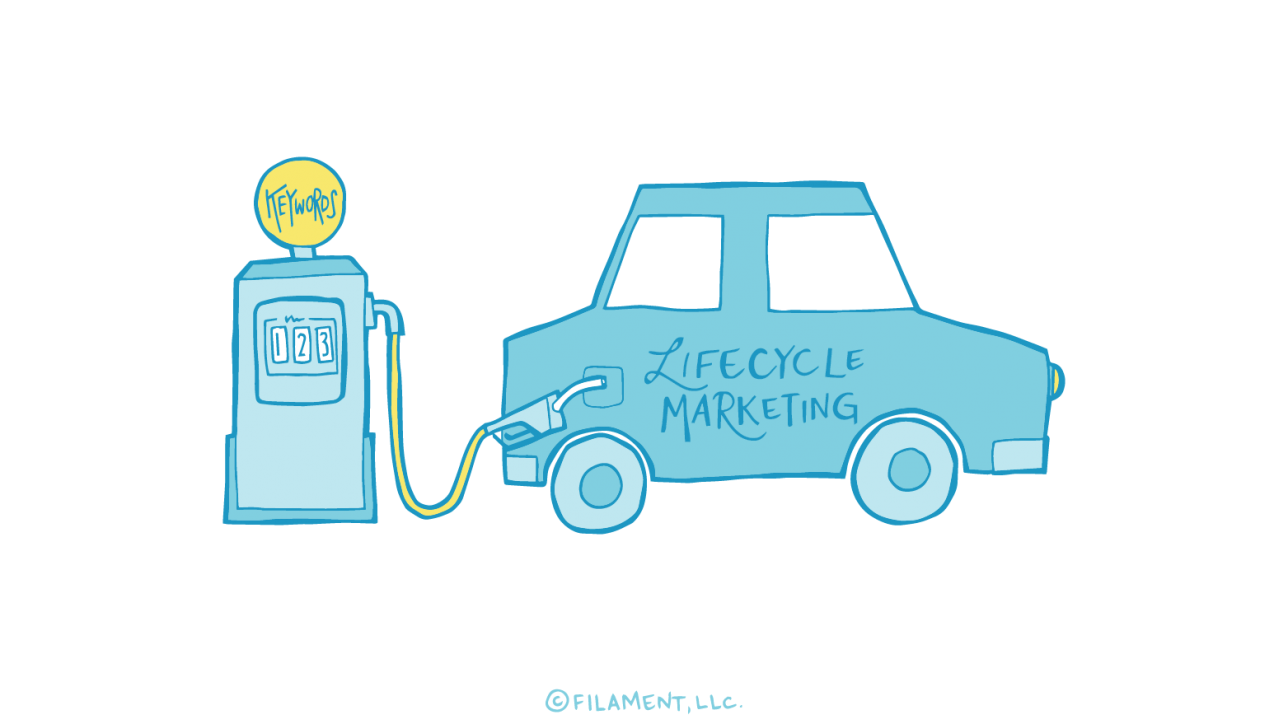The mighty keyword has evolved a great deal throughout the brief history of search engine optimization (SEO). What started as the end all/be all of SEO migrated into something people shy away from out of fear of getting penalized. For legitimate SEO use, however, the keyword is still as important as it has ever been.
There is so much “power” packed into a tiny keyword or keyword phrase that it’s ridiculous to ignore your keyword(s) when they can be working for you. If they’re ignored, they can actually work against you. The right keyword(s) for your website may come organically or be an obvious choice, but in many situations, some research is required.
Once you have your core keywords it’s time to dive further into better practices and explore lifecycle marketing. Get a good grasp of the lifestyle of your customers. Learn where they are in the purchasing lifecycle so you can better address their needs while they’re exploring the pages of your website. This information can be very valuable. For example if someone is just at the initial stages of their lifecycle experience with your website, you don’t want to ask them to fill out a form with all of their personal information – that is extremely off-putting and can potentially scare them away. But the initial stage is one of interest and intrigue – it’s where you can begin introducing them to your products and explaining their great benefits. Note that I said introducing – not overwhelming them with information as they’re not at that stage yet.
It is while you are tailoring your website to match the lifecycle marketing approach that you will really need to hone those keywords/keyphrases and apply them appropriately. By doing this you may actually be able to help a customer through the lifecycle faster by pulling them into your website at a complementary lifecycle stage. By doing that, you’ll be making their experience more satisfactory and rewarding.
Imagine a company that sells cogs. You want to learn about cogs to see if you need one. Your keyword search is likely to be something like “what is a cog”. Lo and behold, our fantastic website has a page labeled “What is a Cog” that explains it in detail for you. The cog company also has a link to “How to Use a Cog” to slide you deeper into the lifecycle. Now imagine that your cog just died and you need a new one. Your search is probably going to be similar to “Buy a Cog”. You’re pretty far in the lifecycle and want to skip the introductory phases of the website. In fact, you’re already a user who wants to use again and may move into the promoter lifecycle stage, so the page dedicated to buying may offer incentives for joining their social media campaign and you’re happy to do so because you are quickly getting to what you need and feel taken care of and understood by the brand.
Contact Filament to see if we can help you fine tune your keywords to make lifestyle marketing work for you.


